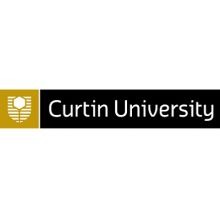UK academics are used to having their work judged both on its scholarly quality and its impact on the wider world.
But this distinction makes no sense, according to a thinker on how research is communicated, who argues that academics should be able to choose at the end of their research whether to release a video via YouTube or publish an academic paper.
The issue of quality versus impact emerged in 2014’s research excellence framework, the UK’s huge assessment of research that helps determine university funding. Controversially, for the first time in 2014 the “impact” of research “beyond academia” counted for 20 per cent in the assessment process.
But during a recent discussion about the future of the REF, which is next due in 2021, Cameron Neylon, professor of research communication at Curtin University, said this division should end.
“If I could change one thing in the REF, it would be to remove the separation of impact and outputs,” he told an event titled The Road to REF 2021: Is the UK Leading or Lagging in its Approach to Research Assessment?, held in London on 7 December.
“They are all…effects this research is having on the outside world.”
“I’d love to live in a world”, he continued, where a “primary care researcher could make the choice between publishing a YouTube video intended for the education of nurses versus publishing an academic paper”.
He also criticised the focus on “excellence” in the REF as vague, as it was a “term that is trying to mean far too many things to mean anything”.
“In using words like excellence, quality and impact, we avoid the difficult political discussions…as to what it is we actually care about," he added. "What is the academy for? What is public investment for?”
A review of the REF published last summer, led by British Academy president Lord Stern of Brentford, called for a “broadening and deepening” of the definition of impact in the next REF so that it includes “groundbreaking academic impacts such as research leading to the creation of new disciplines”.
However, a consultation released by the UK’s four higher education funding bodies on 8 December said this kind of academic impact would be “more appropriately” assessed when looking at the quality of academic outputs, or a university’s research environment, rather than in the impact section of the REF.
Register to continue
Why register?
- Registration is free and only takes a moment
- Once registered, you can read 3 articles a month
- Sign up for our newsletter
Subscribe
Or subscribe for unlimited access to:
- Unlimited access to news, views, insights & reviews
- Digital editions
- Digital access to THE’s university and college rankings analysis
Already registered or a current subscriber? Login








